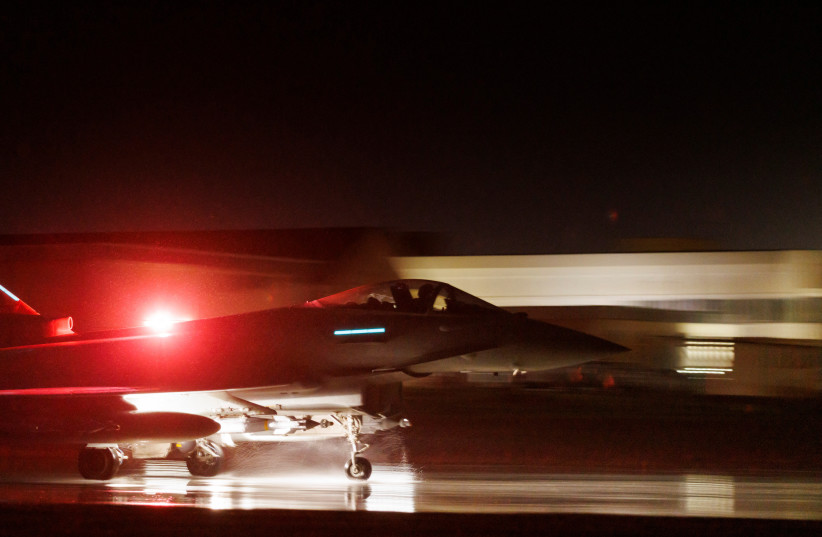The Pentagon joined the White House on Tuesday in remaining elusive about Iran's efforts to resupply the Houthis after the US says it successfully destroyed much of the group's military capabilities.
However, the Pentagon says the Houthis still maintain some military capability and additional strikes against US targets are not out of the question.
The Houthis haven't launched an attack against US targets since Jan. 18, which Pentagon Press Secretary Air Force Maj. Gen. Pat Ryder said is an effect of the US' pressure on the group.
Since Jan. 18, Ryder said the US took several self-defensive strikes when there was an imminent threat of an anticipated launch.
Ryder said the US' strikes are impacting the Houthis' ability to conduct attacks from a physical and diplomatic standpoint, but did not provide the specific percentage of their military capability degradation.

Confirming strikes against Houthi targets
Ryder said the US and coalition members conducted strikes against eight Houthi targets on Monday.
"These strikes were precise, proportionate and intended to further disrupt and degrade the capabilities that Houthis have been using to threaten global trade and the lives of innocent mariners," Ryder said. "Targets included a Houthi underground storage site and locations associated with the Houthis missile and air surveillance capabilities."
Ryder said an anti-ship cruise missile preparing to launch was also struck as it presented an imminent threat to vessels operating in the region.
Civilian or Houthi Militant casualties have not yet been reported.
"Since January 11, we've assessed that we've destroyed or degraded over 25 missile launch and deployment facilities and more than 20 missiles," Ryder said. "Plus we've struck unmanned aerial vehicle coastal radar and air surveillance capabilities, as well as weapons storage areas with good effects."
The Pentagon reiterated the White House's claim that its keeping a "close eye" on the Houthis resupply and refresh rates.
Ryder wouldn't say if there's been a change in pace or scope of interdiction operations with Iranian ships transporting weapons, or if the Houthis are actively receiving a replenishment right now from Iran.
The Pentagon faced questions on Tuesday if the Navy SEALS are the right group to be carrying out interdiction operations, after the Navy reported the two SEALS who went missing during an operation boarding a ship carrying Iranian weapons to be dead.
